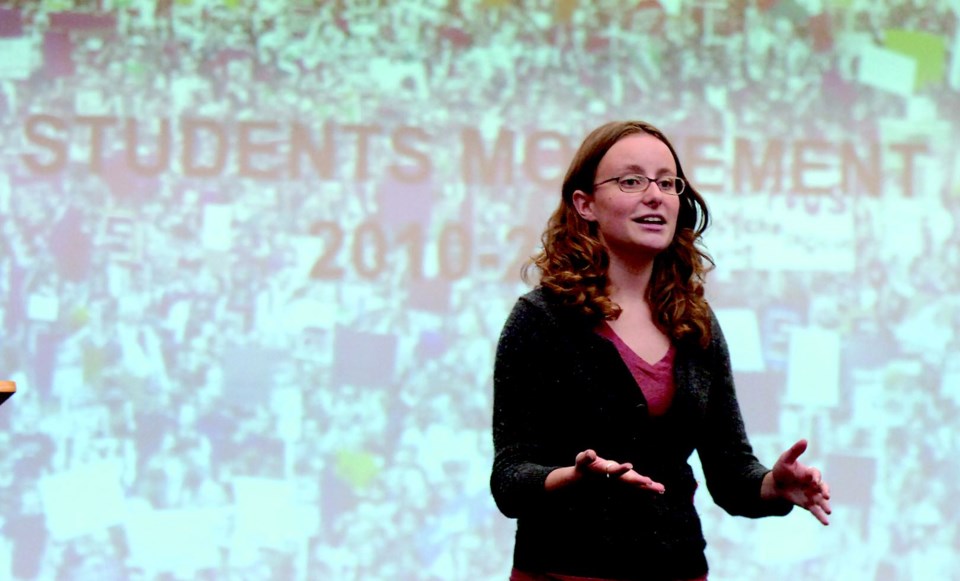Although each province has to deal with education separately, students across Canada can learn to take a larger role in government affairs, said a leader of the largest student strike in Canadian history.
Eliane Laberge, president of the federation for the province's CEGEP students, told those gathered at College of New Caledonia Monday afternoon that Quebec has a student movement culture that's quite different from the rest of the country.
"To have a movement all around the country at the same time... for now, I don't think it's possible," Laberge said, explaining there needs to be a solid common objective for it to be effective. "You can't say 'We want to pay less [tuition fees].' That's not concrete enough."
But she and other student leaders in the province are striking out across Canada on speaking tours to help student unions build a movement that is more political.
Laberge's organization, the FECQ, was one of three federations that joined in the massive action that shut down French post-secondary schools earlier this year in opposition to the former provincial government's plan to raise tuition fees. The Parti Quebecois, elected last month, cancelled the Liberal's proposed hike.
At the peak of the movement, Laberge explained, 300,000 students were on strike and groups were participating in some sort of civil action every single day for weeks.
Laberge, 20, is on a speaking tour organized by the Federation of Post-Secondary Educators Human Rights and International Solidarity Committee. She will also be speaking in Kamloops, Kelowna and Castlegar.
During her presentation, Laberge summarized the two years' worth of activity that eventually culminated in the large student walkout.
"When you're not saying anything, people are not listening to you," she told her audience of about two dozen at the CNC lecture hall. "If you want something, you have to do something."
Laberge, who took over as president of her group June 1, said the tour is a good opportunity to share the students' side of the story, which she said sometimes got lost amidst the the few instances of violence that broke out during the campaign.
One of the major misconceptions around the strike and protests through the spring and summer - both inside and outside Quebec - was that the students, who have had their tuition frozen at around $500 per year - were complaining over nothing.
"At the beginning, people thought we were little babies asking for too much," Laberge said, acknowledging that her fellow students do pay far less than other post-secondary students across the country.
But the proposed $1,600 tuition increase over five years constituted a 75 per cent hike, which stands in the way of making education accessible.
"If you don't have money to pay it, you're going to stop your studies," she said, noting a healthy society requires people who are well-educated.
In addition, she said for the government the tuition increases were "not an economic decision. They were an ideological decision."
"You are students," she said. "Education is made for you."



